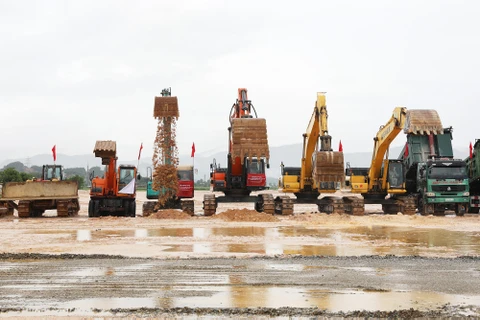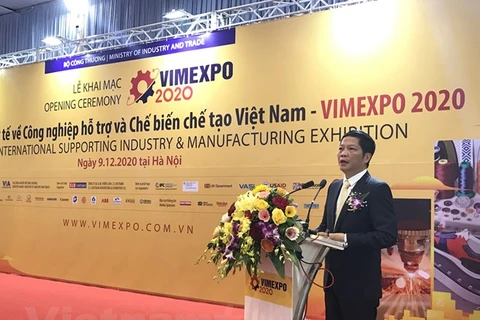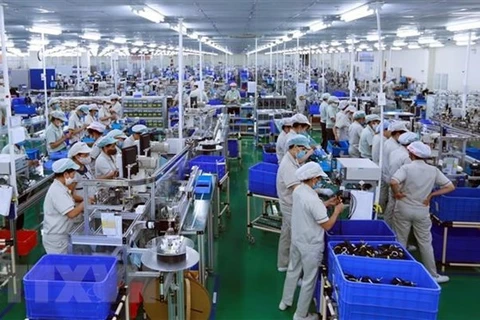 The processing and manufacturing sector is a prerequisite to improve capacity for industrial firms and those operating in supporting industries in particular. (Photo: VNA)
The processing and manufacturing sector is a prerequisite to improve capacity for industrial firms and those operating in supporting industries in particular. (Photo: VNA) Hanoi (VNA) – The processing and manufacturing sector is a prerequisite to improve capacity for industrial firms and those operating in supporting industries in particular, Deputy Minister of Industry and Trade Do Thang Hai has said.
In an interview granted to the Vietnam News Agency, Hai said Vietnam should foster its processing and manufacturing sector to open up market opportunities for businesses operating in supporting industries, helping them become suppliers and join supply chains.
The State should play a more active role in expanding the market for the firms, the official said, explaining that they should learn from foreign countries’ technologies and production experience.
Hai also suggested policies to orient social resources towards production, and the allocation of resources to processing and manufacturing enterprises, thus enabling them to meet regional and international standards, and optimise free trade agreements.
Under Resolution No. 115/NQ-CP, Vietnam aims to be able to churn out supporting industrial products with high competitiveness by 2025, meeting 45 percent of the essential production and consumption demands at home, and making up around 11 percent of the total industrial value.
By 2030, supporting industrial products are expected to satisfy up to 70 percent of the domestic demands, and account for about 14 percent of the accumulative value.
To that end, the Ministry of Industry and Trade will continue its coordination with other ministries, agencies, localities and concerned organisations to speed up the building of relevant mechanisms and policies to create a comprehensive legal framework for industrial growth.
Hai said the ministry will also step up international cooperation, maximise the support of international organisations and foreign countries to raise personnel quality, transfer technologies, improve competitiveness of domestic firms, create connectivity and exchange opportunities between domestic and foreign enterprises, and further join the global production chain.
Asked about priorities in the time ahead, the official said during the 2030-2045 period, Vietnam will focus on developing new generations of IT and telecom, promoting digital technology, automation, high-end equipment, new materials and bio-technology.
The Politburo’s Resolution No. 23-NQ/TW has also ordered great attention to seven major policy groups to boost priority for processing and manufacturing industries.
The groups cover industrial structure transformation, development of priority industries, investment environment, corporate development, personnel development, science and technology, natural resources exploitation, environmental protection, and climate change adaptation during industrial development.
Stable supporting industries and restructuring of chains for industrial production are crucial to improving the country’s manufacturing sector, according to Vietnam Chamber of Commerce and Industry (VCCI).
The organisation has worked out a plan to develop appropriate policies for supporting industries towards minimising reliance on the import of raw materials as well as reducing prolonged, simple and low-value-added processes like packaging and plastic components.
This will enable Vietnam to not only create more value and put the country in a better position in the global supply chain, but also create more opportunities for Vietnam in terms of free trade agreements (FTAs).
According to the VCCI, high dependence on imports for supporting industries will lead to higher risks and increase the costs for enterprises.
Dau Anh Tuan, Director of VCCI’s Legal Department, said Vietnam's COVID-19 response could make it an attractive investment destination as economies seek to make their supply chains less dependent on other countries.
Foreign investors were considering shifting investments to Vietnam due to their trust in the country's safety amid the pandemic. With a number of new generation FTAs, Vietnam would have more opportunities if the Government could offer better policies and clear targets to encourage and create favourable conditions for Vietnamese businesses and attract foreign investment into prioritised manufacturing sectors, they said./.






















